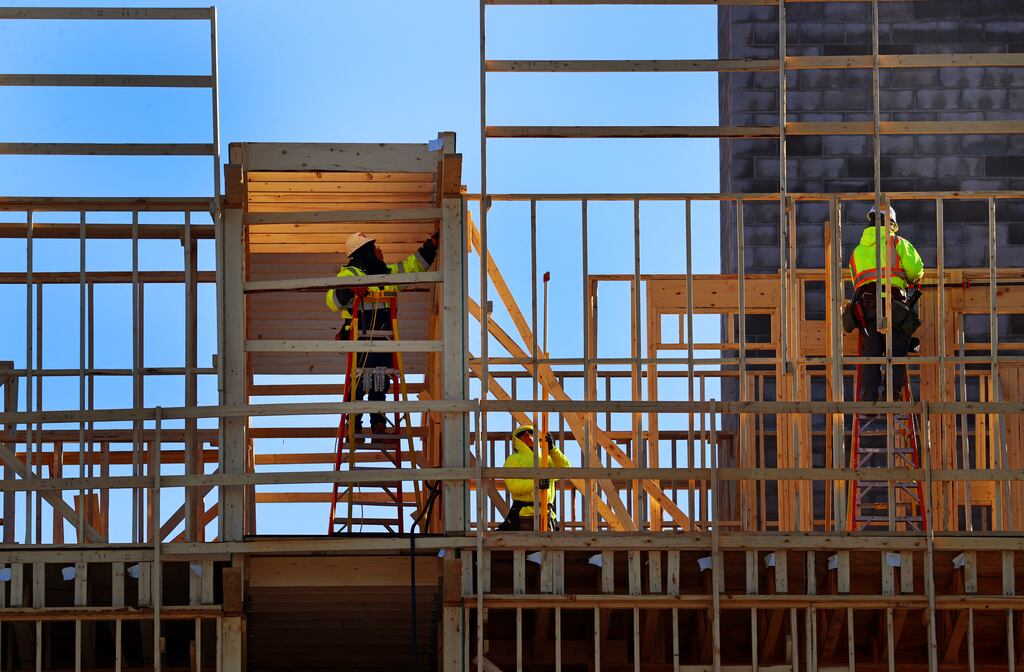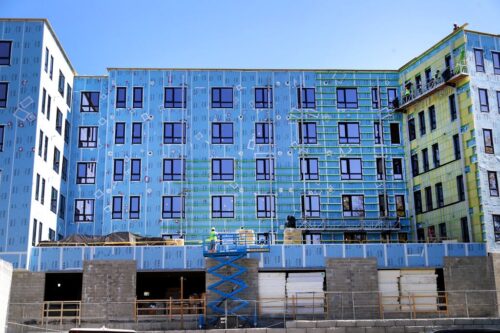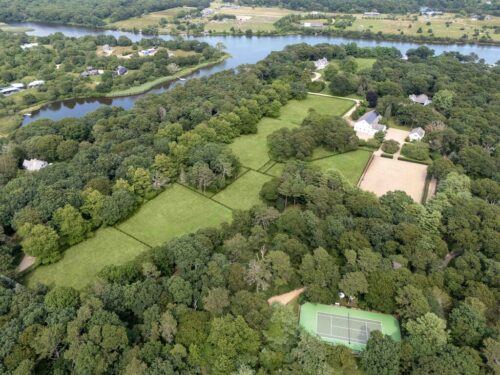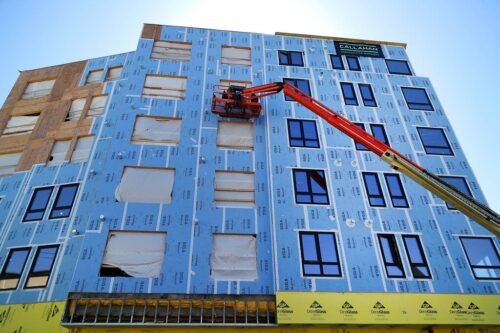Massachusetts is well known for its local opposition to new housing efforts.
Local resistance to a state law mandating towns make it easier to build apartments in the suburbs has been intense. Local resident groups frequently dub proposed developments in their neighborhoods scary nicknames like “The Monster Project” and “The Weston Whopper,” depicting them as skyscrapers towering over quaint single-family homes.
But those loud opponents may actually be in the minority.
A new poll from MassINC, commissioned by the pro-housing group Abundant Housing Massachusetts, found that the majority of the state’s voters actually support new housing development, favoring it over other considerations like preserving the character of neighborhoods.
More than 90 percent of the 803 voters MassINC surveyed in March identified the cost of housing here as a problem, and 71 percent said they would prioritize building more homes that people can afford over preserving the character of neighborhoods. Some 57 percent of respondents said the cost of homeownership and renting in their own communities is “a big problem,” and 75 percent said there are not enough homes in Massachusetts that the average person can buy or rent.
“This survey shows that the loud opposition that often show up at local planning meetings are actually a minority,” said Richard Parr, senior research director at The MassINC Polling Group. “Most people, when presented with practical solutions, seem ready to say yes to more housing.”
The YIMBYs are coming, to the suburbs
The poll, said Jesse Kanson-Benanav, executive director of Abundant Housing, indicates that the extreme cost of housing in the state — the median-priced single-family home in Greater Boston sold for $930,000 in March — has become the most pressing issue for everyday people in Massachusetts, so much so that more people are becoming supportive of solutions that may feel uncomfortable.

Its a welcome sign for housing advocates, who argue the state needs to compel cities and towns to build more. Massachusetts has not built enough housing over the last couple of decades to keep up with the state’s growing population, and the Healey Administration earlier this year established a target of 222,000 new homes by 2035. But in a state where local governments retain a strong hand in land-use decisions, reaching that goal that will almost certainly require buy-in from cities and towns.
The majority of people surveyed by MassINC said they would support efforts to increase new development near public transit, as well as allowing homes to be built on smaller patches of land. Most also said they would support allowing smaller multifamily buildings like triple-deckers in their neighborhoods.
The results of the poll may sound contradictory because opposition to new housing is loud in many communities. But it aligns with research conducted by Boston University professors in the late 2010s that found that the people who attend meetings for proposed development are disproportionately white, older, male and homeowners.
Those opponents may not necessarily be representative of the community at large, the BU research found. And even so, the majority of the voters surveyed by MassINC said they lived in a single-family home. Support for new housing development was highest among renters, non-white voters, parents, and people under the age of 45.
The poll, said Kanson-Benanav, should serve as evidence for the Legislature to pass more policies that encourage development.
Several legislators have recently introduced bills that would reduce the scope of the MBTA Communities Act, the law that requires towns to zone for more housing. And two recently announced Republican candidates who plan to run against Governor Maura Healey have criticized the administration for its approach to enforcing the law, with one, former MBTA executive Brian Shortsleeve, saying he would push the Legislature to repeal it.
“Across the Commonwealth, voters want more housing solutions that create an abundance of housing opportunities for families, renters, and longtime homeowners alike,” said Kanson-Benanav. “They’re telling lawmakers: say yes to homes — and yes to the future of Massachusetts by passing reforms that will build more homes for everyday residents.”
If so many people are leaving Massachusetts, why aren’t housing costs going down?Massachusetts needs more affordable housing, study says. Lots of it.Signs of new life this spring in Greater Boston’s housing market, but it’s not getting any cheaper




Comment count: